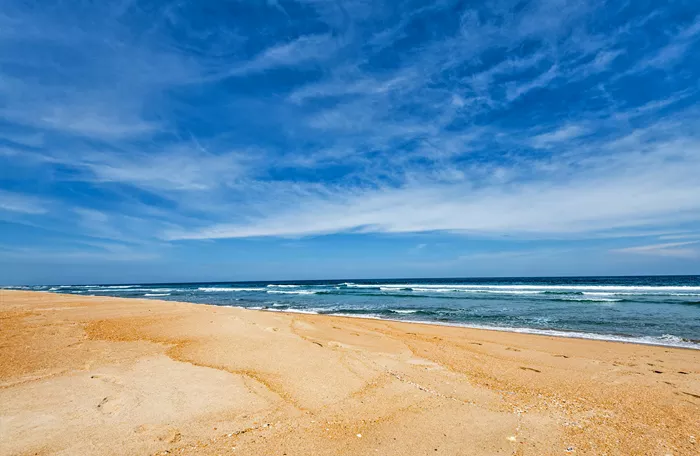The Outer Banks (OBX) is a chain of barrier islands off the coast of North Carolina. Many campers wonder if they can sleep on these beautiful beaches. The answer is yes, but with rules. This guide explains everything you need to know.
Beach camping here offers stunning ocean views. You’ll fall asleep to the sound of waves. But proper planning is key. Let’s explore the details.
Understanding Outer Banks Geography
The Outer Banks stretch over 200 miles. Popular areas include:
- Corolla
- Duck
- Kitty Hawk
- Nags Head
- Hatteras Island
- Ocracoke Island
Each section has different camping rules. The northern parts are more developed. The southern areas offer more remote options.
Legal Aspects of Beach Camping
National Park Service Regulations
Most OBX beaches belong to the Cape Hatteras National Seashore. The National Park Service manages these areas. Their rules allow camping in designated spots only.
Town-Specific Rules
Some towns prohibit beach camping entirely:
- Duck
- Southern Shores
- Kitty Hawk
- Kill Devil Hills
- Nags Head
Always check local ordinances before setting up camp.
Best Places for Beach Camping
Cape Hatteras National Seashore
This area permits camping with restrictions:
- No camping within 300 feet of sea turtle nests
- Stay below the high tide line
- Maximum 14 consecutive nights
Ocracoke Island
This remote island offers:
- Designated campgrounds
- Primitive camping areas
- Beautiful isolated beaches
Carova Beach (4WD Access Only)
The northernmost OBX area allows:
- Beach driving with permit
- Limited overnight camping
- Complete self-sufficiency required
Essential Gear for OBX Beach Camping
Packing right makes your trip successful. Here’s what you need:
Shelter Options
- Sand stakes for tents (regular stakes won’t hold)
- Lightweight backpacking tents
- Beach umbrellas for shade
- Wind-resistant designs
Sleep Systems
- Elevated cots to avoid sand
- Sleeping bags rated for coastal temperatures
- Inflatable pillows
Cooking Equipment
- Portable camp stoves (open fires often prohibited)
- Coolers with secure lids
- Biodegradable soap
Safety Items
- First aid kit
- Weather radio
- Shark bite kit (rarely needed but good to have)
Weather Considerations
OBX weather changes fast. Be prepared for:
Summer Conditions
- High humidity
- Sudden thunderstorms
- Intense sun exposure
Off-Season Challenges
- Nor’easters (powerful coastal storms)
- Cold winds
- Rapid temperature drops
Always check forecasts before your trip. Have a backup plan for severe weather.
Tide and Current Safety
The Outer Banks has strong currents. Follow these safety rules:
- Never sleep too close to the water
- Check tide schedules
- Look for tidal pools that might flood
- Mark your high tide line when setting up camp
Rip currents are common. Learn how to identify and escape them.
Wildlife Encounters
You’ll share the beach with local animals:
Common Sightings
- Ghost crabs (harmless but noisy at night)
- Shorebirds
- Dolphins (often seen at dawn)
Protected Species
- Sea turtles (nest May-August)
- Piping plovers (endangered birds)
Never disturb wildlife. Keep lights low during turtle season.
Leave No Trace Principles
OBX ecosystems are fragile. Follow these rules:
- Pack out all trash
- Bury human waste properly
- Avoid dune vegetation
- Use biodegradable products
- Clean your campsite thoroughly
Permit Requirements
Most areas require permits:
National Seashore Permits
- Free for backcountry camping
- Available at visitor centers
- Required for groups over 25 people
Town Permits
- Vary by location
- Often available online
- May have fees
Always carry your permit while camping.
Campfire Regulations
Open fires are generally prohibited. Alternatives include:
- Portable gas stoves
- Contained fire pits (where allowed)
- Battery-powered lanterns
If fires are permitted:
- Keep them small
- Use only local wood
- Extinguish completely
Vehicle Camping Rules
Some OBX beaches allow overnight vehicle camping:
Requirements
- 4WD vehicle necessary
- Tire pressure reduced to 15-20 psi
- Tide charts consulted
- Recovery gear onboard
Restrictions
- No camping in parking lots
- Must move every 24 hours in some areas
- No generators after quiet hours
Best Times for Beach Camping
Peak Season (June-August)
- Warm water
- Busy beaches
- Strict enforcement
Shoulder Seasons (April-May, September-October)
- Fewer crowds
- Pleasant temperatures
- More flexible rules
Winter Camping (November-March)
- Challenging conditions
- Minimal services
- Extreme solitude
Family Camping Tips
The OBX can be great for families:
- Choose campgrounds with restrooms
- Bring sand toys
- Pack kid-friendly snacks
- Establish clear beach boundaries
- Use brightly colored tents for visibility
Solo Camping Considerations
Solo campers should:
- File a trip plan with someone
- Carry emergency communication devices
- Choose more populated areas
- Avoid remote sections without experience
Emergency Preparedness
Be ready for:
Medical Emergencies
- Know nearest hospital locations
- Carry extra medications
- Have evacuation plan
Weather Emergencies
- Identify storm shelters
- Monitor weather alerts
- Prepare to leave quickly
Alternative Accommodations
If beach camping isn’t possible, consider:
- National Park campgrounds
- Private RV parks
- Vacation rentals
- Hostels in nearby towns
Cultural Considerations
Respect local communities:
- Observe quiet hours
- Support local businesses
- Learn area history
- Follow all posted rules
Final Checklist Before You Go
- Verify camping regulations
- Obtain necessary permits
- Check weather forecasts
- Pack appropriate gear
- Share your itinerary
- Prepare emergency contacts
- Review tide charts
- Charge all devices
- Pack plenty of water
- Bring cash for fees
Conclusion
Sleeping on Outer Banks beaches can be an amazing experience. With proper planning and respect for regulations, you can enjoy this unique coastal environment. Always prioritize safety and environmental protection. Your responsible camping helps preserve these beautiful islands for future visitors.
Remember: conditions change frequently. Check for updates right before your trip. Happy camping on the OBX!
Related topics:
Rodanthe Pier in North Carolina Listed for $1.9 Million
What is the Average Cost for RV Parks?
The 11 Best RV Campgrounds on the Beach

